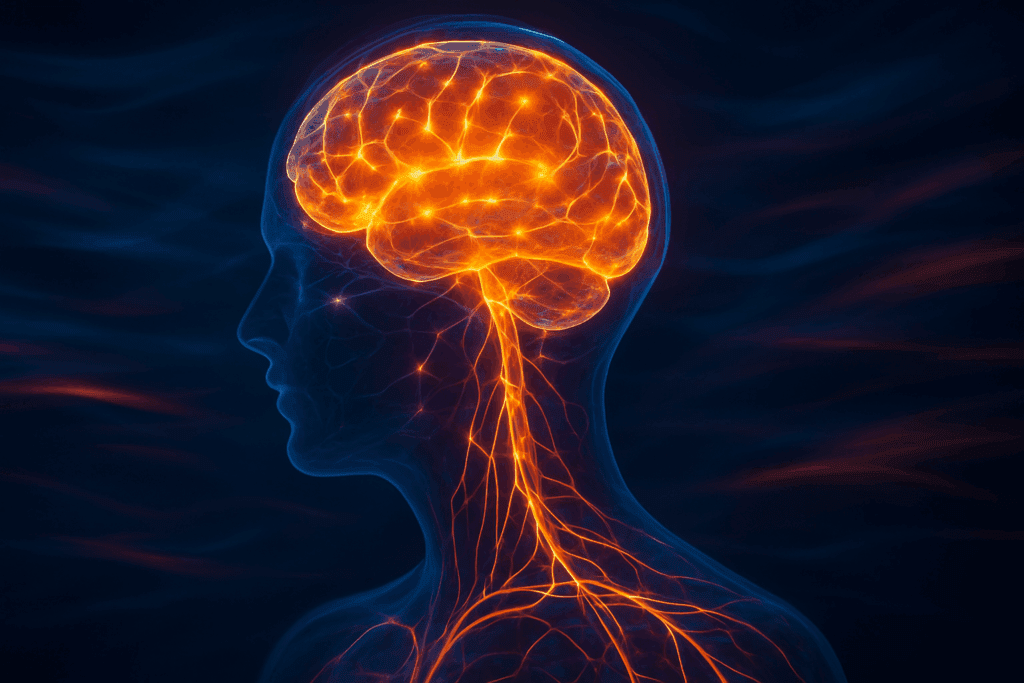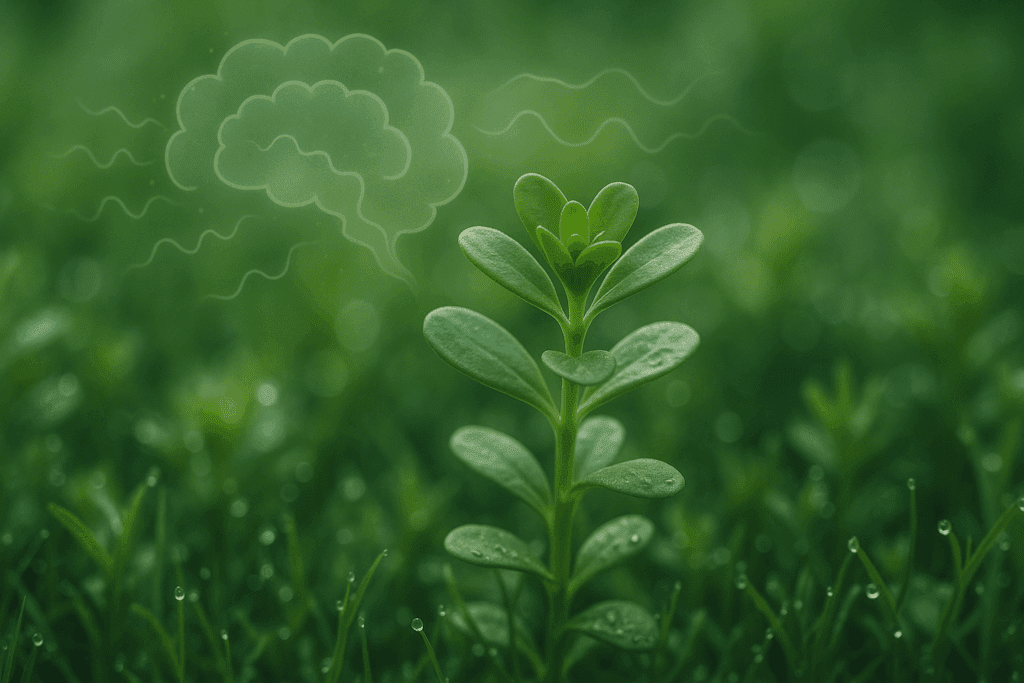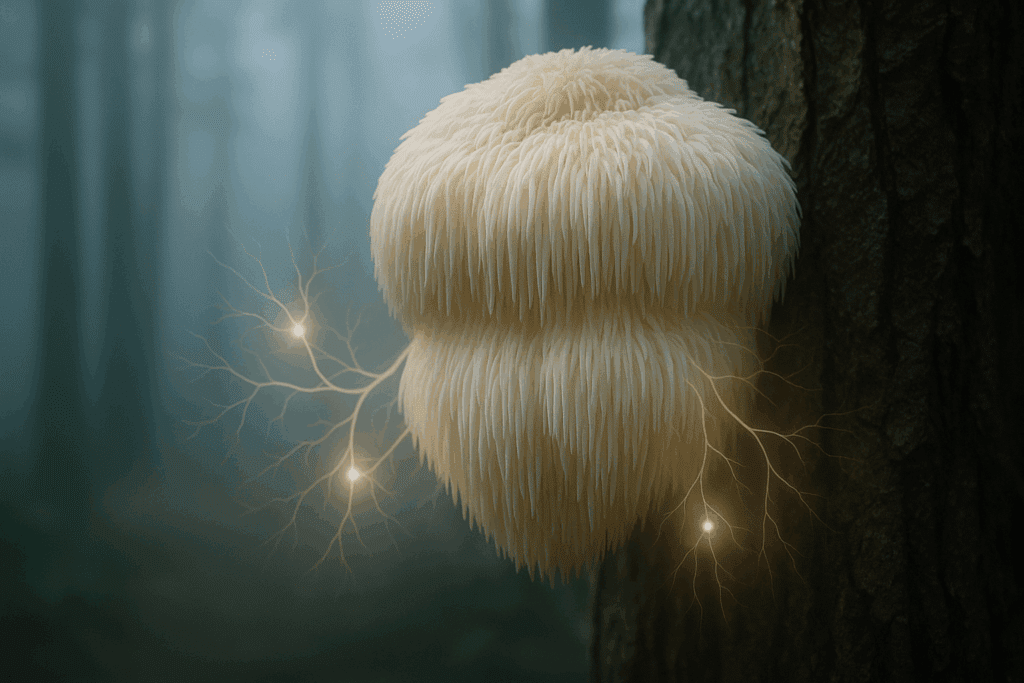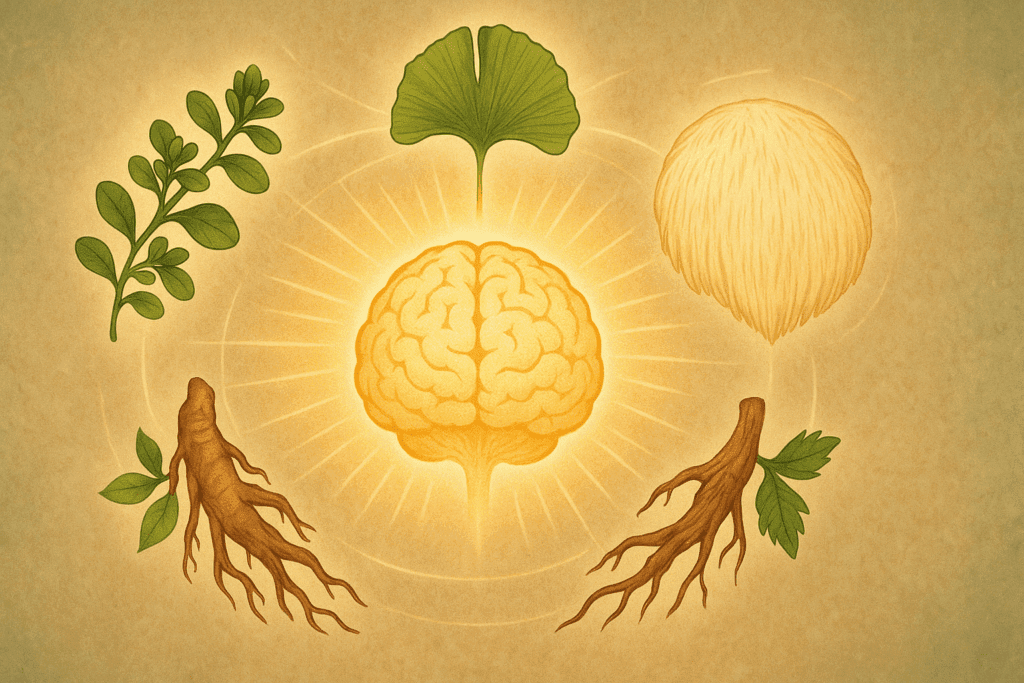For those navigating life with ADHD, the search for strategies to enhance focus, support memory, and nurture cognitive clarity is often ongoing and multi-dimensional. While conventional medications such as stimulants have long been a mainstay of treatment, there is a growing interest in alternative approaches—particularly those rooted in nature. Herbs have captured the attention of both researchers and individuals looking for gentler, more holistic ways to support the nervous system. But which is the best herb for ADHD? And how do these natural compounds potentially influence working memory, mental stamina, and attention span?
You may also like: Best Herb for ADHD Support: How Natural Remedies and Herbs for ADHD Women May Help Boost Focus and Calm
Understanding ADHD and the Role of the Nervous System
To explore the best natural options, it helps first to understand ADHD in context. Attention Deficit Hyperactivity Disorder is a neurodevelopmental condition characterized by persistent patterns of inattention, impulsivity, and, in some cases, hyperactivity. The condition is closely linked with dysregulation in neurotransmitters such as dopamine and norepinephrine. These brain chemicals play a key role in cognitive functions including memory, attention, and executive processing.
The nervous system acts as the command center for our cognitive and behavioral responses. Supporting it through lifestyle practices and nutritional strategies may help create a more balanced internal environment. This is where natural interventions—including herbs and foods that nourish the brain—can play a supportive role. Many individuals with ADHD experience challenges not just with attention, but also with fatigue, memory loss, and short term recall. These symptoms make the exploration of herbs for working memory tasks and exercises to help short term memory particularly relevant.
Herbal Compounds and Cognitive Performance: What Science Suggests
A growing body of evidence points to certain herbs as having nootropic or adaptogenic properties that can assist with mental focus, memory, and stress response. While the term “nootropic” typically refers to synthetic cognitive enhancers, many herbs contain naturally occurring compounds that influence brain function. These include terpenoids, flavonoids, and alkaloids that interact with neural pathways.
One of the key features of effective herbs for ADHD is their potential influence on working memory activities. Working memory is the ability to hold and manipulate information over short periods—a skill often impaired in individuals with ADHD. Research into memory and brain function has examined how herbal supplements can help support this type of cognitive processing. Functional memory tasks for adults often involve real-world problem-solving, sequential memory drills, and other working memory exercises designed to enhance mental flexibility.

Bacopa Monnieri: A Promising Herb for Working Memory and Focus
Among the most researched herbs in the context of ADHD and cognitive support is Bacopa monnieri. Also known as Brahmi, this herb has long been used in Ayurvedic medicine as a tonic for mental clarity and nervous system support. Clinical studies suggest Bacopa may enhance working memory tasks and reduce mental fatigue. Its antioxidant properties help protect neurons from oxidative stress, which is particularly relevant in the management of fatigue and memory loss.
Participants in double-blind trials have shown improved outcomes on memory recall activities for adults and better performance on working memory drills. It’s no surprise then that Bacopa is often included in working memory exercises for adults PDF guides used by clinicians and therapists. Importantly, Bacopa appears to have a calming effect on the nervous system, making it suitable for those who experience tiredness and memory loss due to overstimulation or chronic stress.
Ginkgo Biloba and Its Role in Memory Activities for Adults
Another herb that consistently ranks high among natural options for memory enhancement is Ginkgo biloba. Native to China, Ginkgo leaves contain flavone glycosides and terpene lactones that are believed to improve circulation and protect nerve cells. These compounds may increase blood flow to the brain, thereby enhancing oxygen and nutrient delivery—a key factor in supporting both short term memory and long-term brain health.
When evaluating memory study results, Ginkgo is often associated with improvements in memory recall activities for adults and greater accuracy during working memory games for adults. These cognitive benefits may be particularly pronounced in individuals who struggle with fatigue-related cognitive lapses. Some reports also suggest that Ginkgo may help address extreme fatigue and memory loss, though more research is needed to establish consistent clinical outcomes. Regardless, its neuroprotective effects and minimal side effect profile make it a widely used option in integrative practices.

Rhodiola Rosea for Mental Energy and Cognitive Endurance
For individuals whose ADHD symptoms are closely tied with fatigue and mental fog, Rhodiola rosea is another herb worth considering. Native to Arctic regions, Rhodiola is classified as an adaptogen, meaning it helps the body adapt to physical and mental stress. Studies have demonstrated that Rhodiola can improve mood, reduce fatigue, and enhance mental performance under pressure.
Its relevance for those experiencing tiredness and memory loss lies in its dual action: boosting energy while supporting memory and concentration. Short term memory exercises often become more effective when fatigue is managed, and Rhodiola may serve as a bridge between physical stamina and mental clarity. This herb is increasingly being studied in the context of functional memory tasks for adults, particularly where attention and sustained effort are required.

Lion’s Mane Mushroom: Neurogenesis and Brain Function Support
Although not an herb in the strict botanical sense, Lion’s Mane mushroom (Hericium erinaceus) deserves attention for its impressive impact on cognitive wellness. This medicinal fungus contains compounds called hericenones and erinacines that stimulate the production of nerve growth factor (NGF). NGF is a protein critical for the growth, maintenance, and survival of neurons.
The regenerative potential of Lion’s Mane makes it especially intriguing for those seeking working memory activities or exercises for short term memory improvement. While not a quick fix, long-term use may yield benefits such as increased focus, better memory retention, and reduced mental fog. These effects are supported by findings from memory studies that show improvements in various cognitive domains with regular supplementation.
Adaptogenic Synergy: Combining Herbs for Holistic ADHD Support
In real-world practice, herbs are rarely used in isolation. Instead, many individuals combine two or more herbs to create a synergistic effect that addresses multiple aspects of ADHD. For example, a blend of Bacopa monnieri and Rhodiola rosea may offer both calming and energizing effects—ideal for working memory exercises that require sustained mental effort. Similarly, combining Lion’s Mane with Ginkgo biloba may support both short term memory recall and long-term cognitive resilience.
This synergistic approach can also amplify the effectiveness of memory recall activities for adults, especially when used in conjunction with short term memory activities for adults that engage the brain through repetition, novelty, and sensory involvement. The best herb for ADHD may not be one single herb, but rather a personalized combination tailored to an individual’s unique cognitive profile, lifestyle, and health goals.

Dietary Integration and Everyday Strategies to Enhance Herb Effectiveness
While herbs can be powerful tools, they are most effective when used in conjunction with other lifestyle strategies. Diet, sleep, physical activity, and mental stimulation all influence cognitive performance. For instance, certain foods—like fatty fish, nuts, seeds, and leafy greens—provide essential nutrients that support neurotransmitter synthesis and reduce inflammation.
Incorporating memory activities for adults into daily routines can reinforce the benefits of herbal supplementation. These activities might include word recall games, journaling, puzzle solving, or even guided meditation focused on visualization. Each of these working memory games for adults can be adapted to match the cognitive demands of the day. Functional memory tasks for adults, such as planning a meal or organizing a project, can also be enhanced when cognitive endurance is supported by a thoughtful herbal regimen.
What Research Can We Use on Memory? Scientific Grounding and Clinical Perspectives
A common question when considering herbal approaches is: what research can we use on memory to guide our decisions? Fortunately, there is a growing body of peer-reviewed studies, clinical trials, and meta-analyses that examine the relationship between herbal compounds and cognitive function. From randomized controlled trials evaluating working memory exercises for adults to longitudinal studies assessing the long-term effects of adaptogens on memory and brain function, the evidence base is expanding.
Research also supports the integration of short term memory exercises and memory tasks as effective tools for assessing and improving cognitive skills. These findings provide a foundation for developing targeted protocols that include both herbal and behavioral components. Understanding the mechanisms behind fatigue and memory loss, including their links to inflammation, mitochondrial function, and neurotransmitter imbalance, allows practitioners to offer more personalized, effective solutions.
The Connection Between Fatigue, ADHD, and Cognitive Performance
One of the less-discussed yet critically important aspects of ADHD is the prevalence of extreme fatigue and memory loss. Whether due to sleep disturbances, overstimulation, or executive function overload, tired and memory loss symptoms often go hand-in-hand. Addressing these concerns requires a comprehensive approach that includes stress management, restorative sleep practices, and nutritional support—including the strategic use of herbs.
Working memory activities are especially important for those facing these challenges. When paired with exercises to increase short term memory and herbs that reduce mental fatigue, individuals may experience a gradual return of cognitive vitality. This kind of integrative support helps people feel more in control of their attention and mental energy throughout the day.
Memory and Brain Function: A Lifelong Commitment to Cognitive Health
Ultimately, the pursuit of better focus and memory is not just about managing ADHD—it’s about investing in long-term brain health. Just as physical fitness requires consistent effort, cognitive health demands regular stimulation, rest, and nourishment. Herbs may serve as powerful allies in this journey, particularly when supported by a lifestyle rich in memory-enhancing practices.
Integrating short term memory activities for adults and working memory exercises for adults PDF guides into one’s daily life offers a practical, engaging way to maintain brain agility. These practices, along with carefully selected herbal support, create a dynamic system of care that respects the complexity of the human mind.

Frequently Asked Questions: Best Herb for ADHD and Cognitive Support
1. How can herbs be integrated with short term memory activities for adults to maximize effectiveness?
Herbs that support cognitive function can enhance the benefits of short term memory activities foradults when paired strategically. For example, using Rhodiola rosea before engaging in a mentally demanding activity may improve stamina and reduce the cognitive fatigue that often limits retention. When paired with daily short term memory exercises such as word association or timed recall drills, certain adaptogens may help sustain focus and accuracy. Additionally, herbs like Bacopa monnieri may help reinforce the neurological patterns formed through repetition and pattern recognition tasks. The key is consistency—using working memory activities and herbal supplementation together over time leads to more lasting results.
2. Are there specific working memory tasks that benefit more from herbal support than others?
Yes, working memory tasks that require sustained attention, such as dual-task performance orsequence retention, may benefit more from herbal support. These tasks place a high demand on cognitive endurance and executive functioning, areas often impaired in ADHD. When individuals use herbs known for supporting neuroplasticity and neurotransmitter modulation, like Ginkgo biloba or Lion’s Mane mushroom, the impact of these tasks becomes more profound. Research suggests that combining working memory exercises with supportive herbs may also accelerate progress in multitasking and problem-solving skills. This makes a strong case for an integrated approach to cognitive training.
3. Can exercises to increase short term memory be personalized based on an individual’s herbal regimen?
Absolutely. Just as no two cognitive profiles are the same, exercises to increase short term memorycan be tailored based on how an individual responds to specific herbs. For example, someone who finds improved focus with Rhodiola may benefit from rapid-response drills, while those using Lion’s Mane might perform better on visualization or story-based memory recall activities for adults. Functional memory tasks for adults, like organizing schedules or remembering complex instructions, can also be adjusted depending on how the brain responds to herbal interventions. Tracking changes over time using working memory exercises for adults PDF logs can help fine-tune these strategies effectively.
4. What role do working memory drills play in improving herbal effectiveness for ADHD?
Working memory drills help reinforce the neural pathways that certain herbs may enhance bysupporting synaptic plasticity. When someone takes a memory-supportive herb and follows it with structured working memory activities—such as repeating sequences backward or mentally rotating shapes—the combined effect strengthens both recall and retention. These drills act as practical applications that make biochemical changes more functional. Over time, this fusion of botanical and behavioral support can increase the efficiency of working memory games for adults and improve task-switching speed. This holistic method helps translate herbal effects into real-life cognitive gains.
5. Are there advanced memory activities for adults that specifically target fatigue-related memory challenges?
Yes, there are advanced memory activities for adults designed to work around cognitive dips causedby fatigue. Techniques such as interleaved practice (switching between tasks) and spaced repetition help distribute mental load in ways that conserve energy. When combined with herbal supplements that mitigate extreme fatigue and memory loss, these strategies create a buffer against burnout. Rhodiola rosea, for instance, can support mental alertness, making these activities more manageable. Using short term memory exercises during peak energy times and relaxing memory tasks in the evening creates a sustainable rhythm that supports memory improvement without overwhelming the nervous system.
6. How can working memory games for adults be adapted for use alongside herbs like Bacopa or Ginkgo?
Working memory games for adults can be adapted in timing, complexity, and format to synchronizewith the effects of herbs like Bacopa or Ginkgo. For instance, when taking Bacopa, which builds cognitive benefits gradually, games involving spatial navigation or multi-step reasoning may show more improvement over time. With Ginkgo, which enhances cerebral circulation, activities that require split-second decisions or processing speed might yield faster results. Games can be scaled up in difficulty as herbal effects become more noticeable, allowing for progressive development. Logging progress with working memory exercises for adults PDF trackers can help users visualize how herbal support affects their game performance.
7. What are the most overlooked functional memory tasks for adults that can be enhanced with herbs?
Functional memory tasks for adults, such as managing medications, budgeting monthly expenses, orremembering social obligations, are often overlooked in favor of more academic-style drills. However, these tasks are essential for independent living and can benefit greatly from herbal cognitive support. For instance, someone using Lion’s Mane may find it easier to recall the steps involved in preparing a weekly meal plan. Combining these tasks with targeted working memory exercises not only boosts performance but also creates practical, sustainable habits. These real-world applications make herbal interventions more meaningful and personalized.
8. How do exercises for short term memory improvement differ from long-term cognitive training?
Exercises for short term memory improvement tend to focus on immediate information retention,such as memorizing phone numbers or directions, whereas long-term cognitive training involves building mental frameworks for learning and decision-making. Herbs that support neurotransmitter balance and neurogenesis can make short term memory exercises more efficient, allowing the brain to hold onto and process new data with greater clarity. Integrating memory tasks into daily routines—such as recalling names at meetings or remembering items from a grocery list—reinforces these gains. Meanwhile, long-term strategies may include integrating these habits with lifestyle shifts and ongoing herbal regimens to support structural brain changes.
9. What should individuals track when combining herbal supplements with memory recall activities for adults?
When combining herbal supplements with memory recall activities for adults, it’s important to trackmore than just accuracy or speed. Noting changes in mood, fatigue levels, task enjoyment, and perceived mental clarity provides a more holistic view of progress. Keeping a journal or using structured working memory exercises for adults PDF templates can help document patterns over time. Users might discover that certain activities are more effective after a specific herb is taken or that improvement occurs in areas like verbal fluency or mental endurance. This form of mindful tracking reinforces EEAT principles by promoting personal experience, evidence, and adaptability.
10. Can daily working memory exercises enhance the long-term benefits of herbal nootropics?
Yes, daily working memory exercises create a mental framework that herbal nootropics can amplifyover time. Just as physical exercise improves the uptake and utility of nutrients, cognitive exercises improve the brain’s responsiveness to neuro-enhancing compounds. For instance, consistent use of short term memory activities for adults can heighten the neuroplasticity initiated by Bacopa or Lion’s Mane. This creates a feedback loop where improved function encourages further practice and supplement adherence. Over time, these synergies support not only memory but also mood, attention span, and overall cognitive resilience.

Conclusion: Choosing the Best Herb for ADHD Through Personalized, Evidence-Based Strategies
In the evolving world of cognitive health, the question of the best herb for ADHD does not yield a one-size-fits-all answer. Instead, it opens the door to a broader understanding of how natural compounds can support memory, focus, and mental clarity in diverse and individualized ways. Whether one leans toward Bacopa for its memory-enhancing qualities, Rhodiola for its fatigue-fighting properties, Ginkgo for circulation support, or Lion’s Mane for its neuroregenerative potential, the key lies in alignment—aligning the herb’s benefits with one’s unique needs and lifestyle.
Equally important is the integration of working memory tasks, short term memory activities for adults, and memory recall activities that reinforce cognitive gains through practice and engagement. These tools, when combined with the right herbal support, create a sustainable framework for enhancing memory and brain function.
Finally, it is vital to approach these options with a spirit of curiosity and discernment. By asking what research we can use on memory and seeking guidance from credible sources, we honor the EEAT principles of experience, expertise, authoritativeness, and trustworthiness. In doing so, we take informed steps toward a clearer mind, sharper focus, and healthier brain—naturally and effectively.
Further Reading:
9 Natural Remedies to Support ADHD Treatment
Natural Relief for Symptoms: Top Herbs for ADHD Treatment and Management


